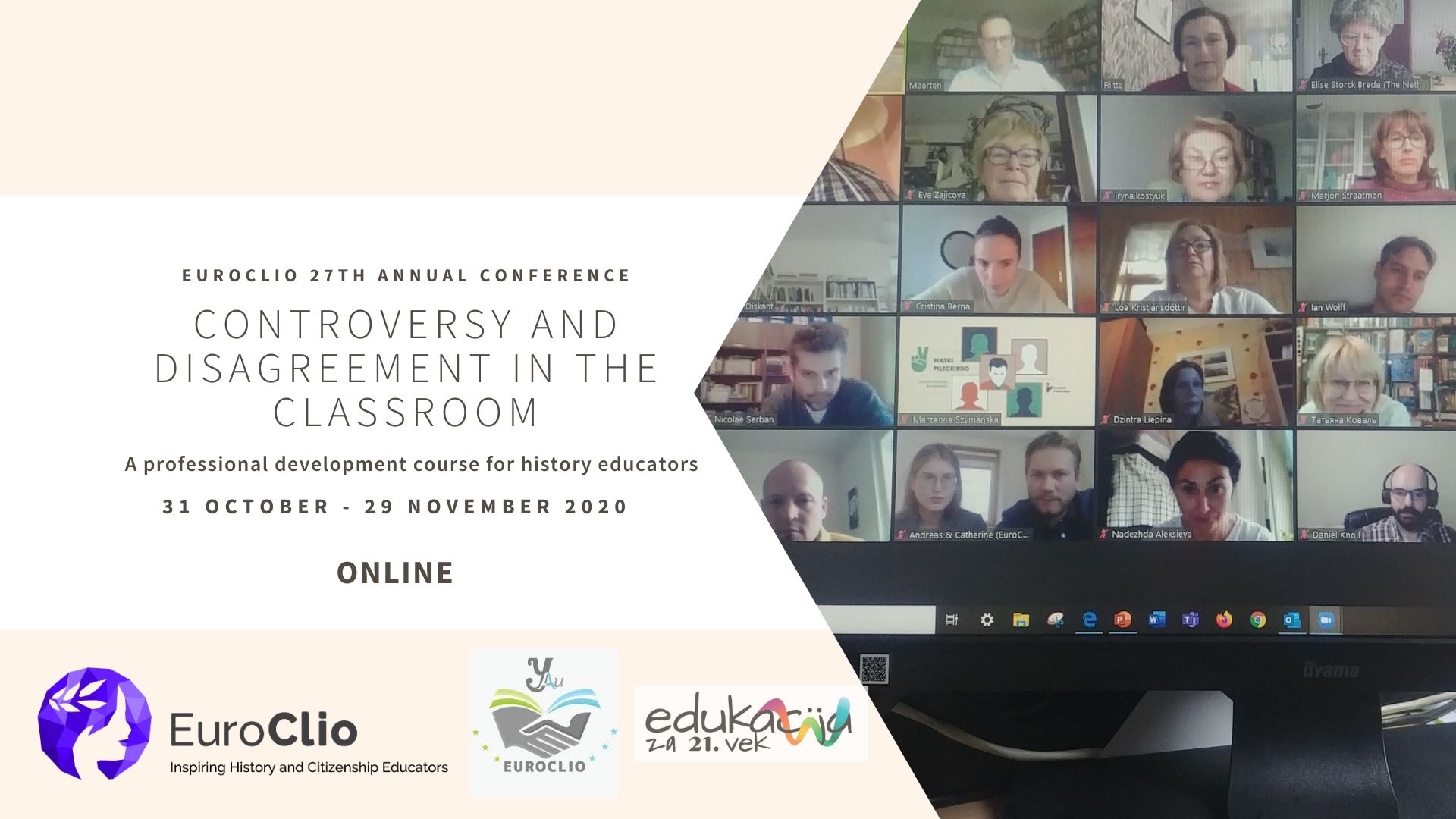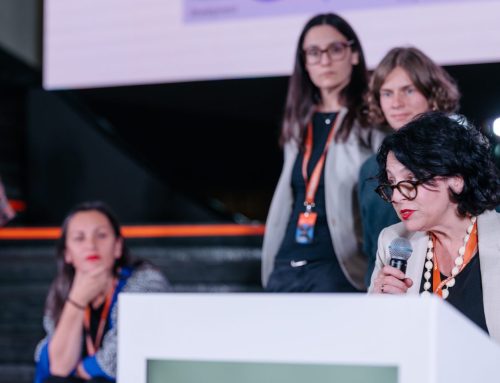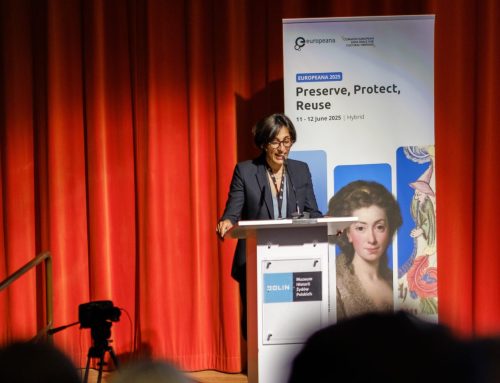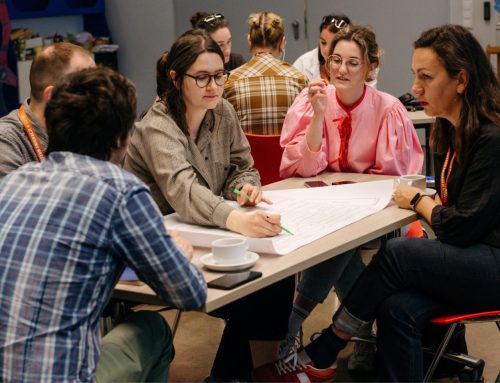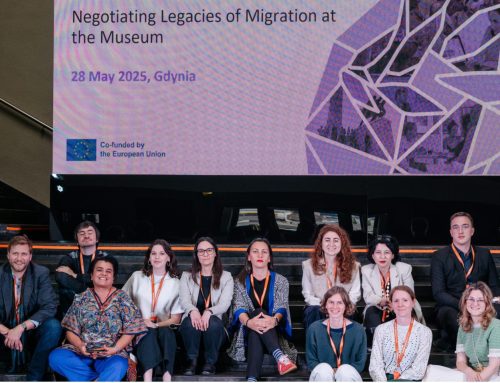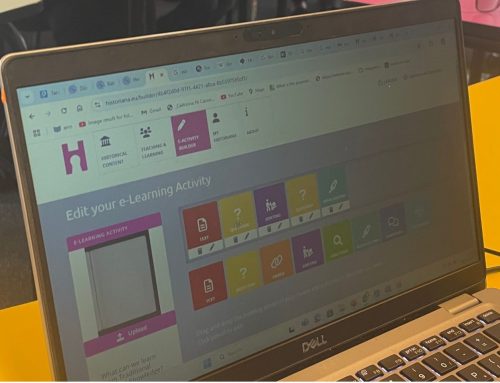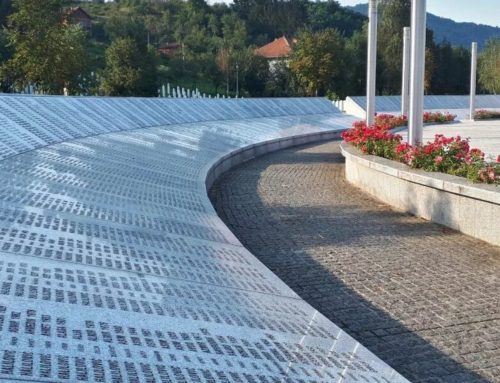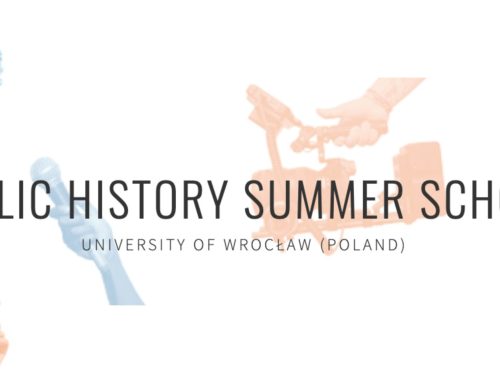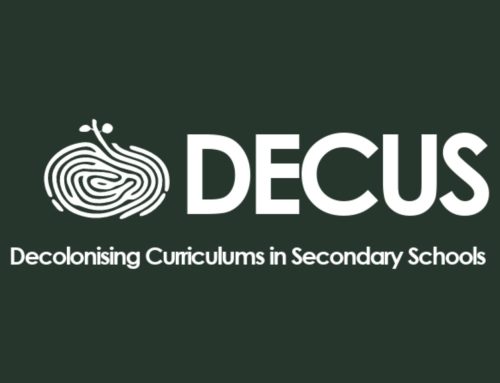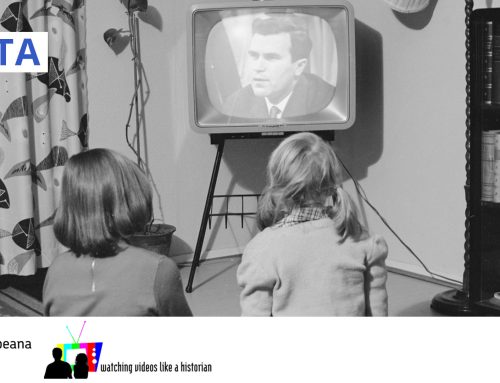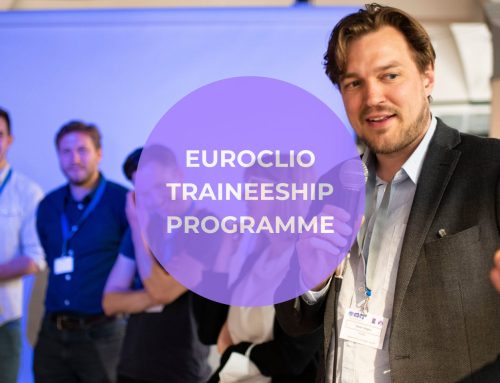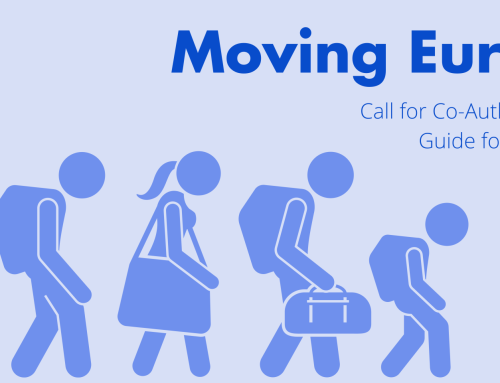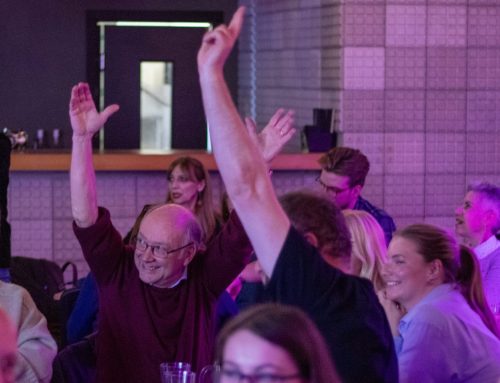EuroClio’s Annual Conference has come to an end. The conference was set to take place in Belgrade, first in March and then in October, to be then moved online, due to COVID-19. The conference centred around the question: How can you teach your students to have a respectful debate on controversial topics? This skill is increasingly important as classrooms (and societies) are diverse and teeming with opposing and diverging views. Worryingly, it seems students (and people in general) are losing the ability to respectfully engage in conversation with people they do not agree with. Paradoxically, students (and again people in general) whilst living in these diverse society, gather mostly information and opinions from others in their “bubble”. This is problematic in its own right, however, this is especially problematic when these bubbles exist of extremist ideologies, conspiracy theories, alternative facts and so-called ‘fake news’. As a consequence, teachers are more often confronted with radical and opposing views in the classroom and expected to deal with them. But how do you do that? The 20 workshops and 5 plenary sessions of the Annual Conference aimed to provide teachers with tangible strategies and lesson plans on how to go about this immense challenge. 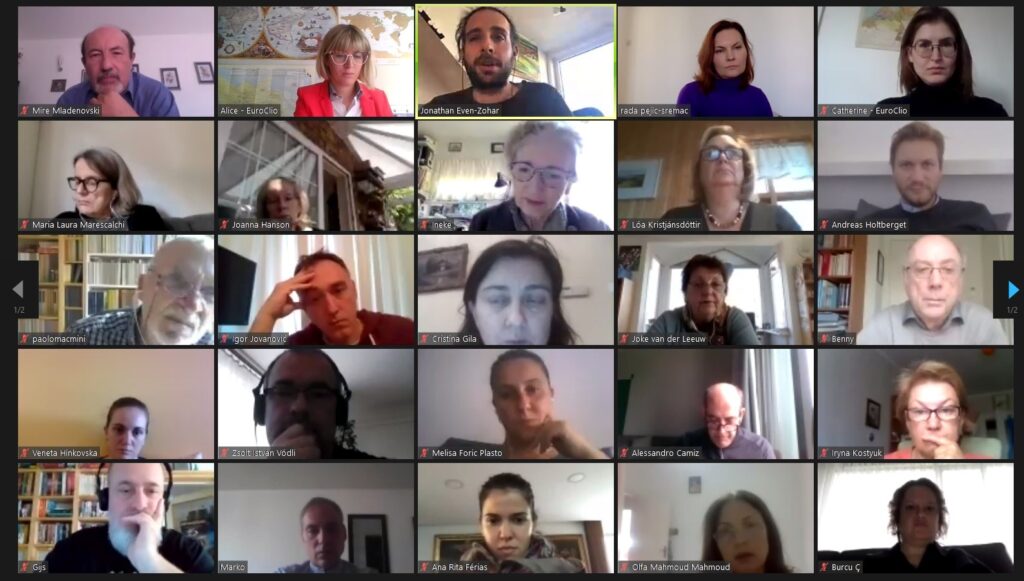
This Annual Conference was part of the Learning to Disagree project. This project was initiated in response to the needs of educators who experience difficulties in addressing sensitive and controversial issues in their classrooms. The project, now in its final stages, offers training and support materials to teachers to face these topics head-on with their students. These materials aim at teaching students vital skills such as the ability to listen, to consider alternative interpretations, and the ability of interacting with people that they disagree with in a constructive manner. It was a great opportunity to share all the workshops that were developed for this project with a wider audience.
This was the first time EuroClio organised the Annual Conference online, which was an exciting challenge for us. We quickly saw the benefits of hosting the conference online; many more than usual could join the Conference as people did not have to take days off work and travel to Belgrade. Everyone could attend the Annual Conference from their kitchen, bedroom, or office. Already months into home office solutions, zoom fatigue was perhaps our greatest worry.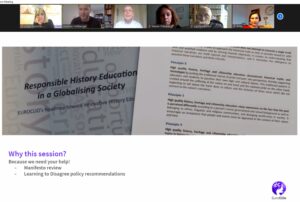
You can imagine we were a bit nervous on the first Monday of November. However, we soon found out, as the first workshop started, that we had nothing to be nervous about. For four weeks participants from across Europe joined us every afternoon at 16:30 and actively and enthusiastically participated.
The workshops, whilst limited by the online format, were all different both in terms of content and format. Some workshop hosts explained how to incorporate the new media in the classroom. During workshops like these participants learned how they could incorporate meme making, documentary making, and graphic novel writing in their lesson plans. Others presented how one could develop historical games to play with students in class. Many workshops gave participants cases, activities and teaching strategies to encourage discussion, dialogue and debate. Most workshop hosts had participants experience the strategies and activities first-hand, as participants became students and went through each learning activity as if they were a class of high school students.
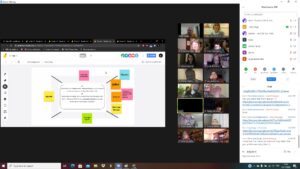 The workshops hosted by Learning to Disagree team members, who presented the learning activities they had developed, were all received positively by participants. In these workshops participants were introduced to the many lesson plans developed as part of this project. Participants were also introduced to the many teaching strategies that are the product of this project. You can find the teachers’ guide with all teaching strategies here.
The workshops hosted by Learning to Disagree team members, who presented the learning activities they had developed, were all received positively by participants. In these workshops participants were introduced to the many lesson plans developed as part of this project. Participants were also introduced to the many teaching strategies that are the product of this project. You can find the teachers’ guide with all teaching strategies here.
Workshop hosts were not the only ones transferring knowledge as participants shared their own experiences and philosophy of teaching, which fostered a sense of mutual understanding and made this Annual Conference a place where peers could exchange knowledge. So much so, we sometimes forgot we were not in the same room.
We really want to thank everyone who participated in one of the workshops and all of our workshop hosts all of your efforts, participation and contributions made this an Annual Conference we will not forget! See you soon!

